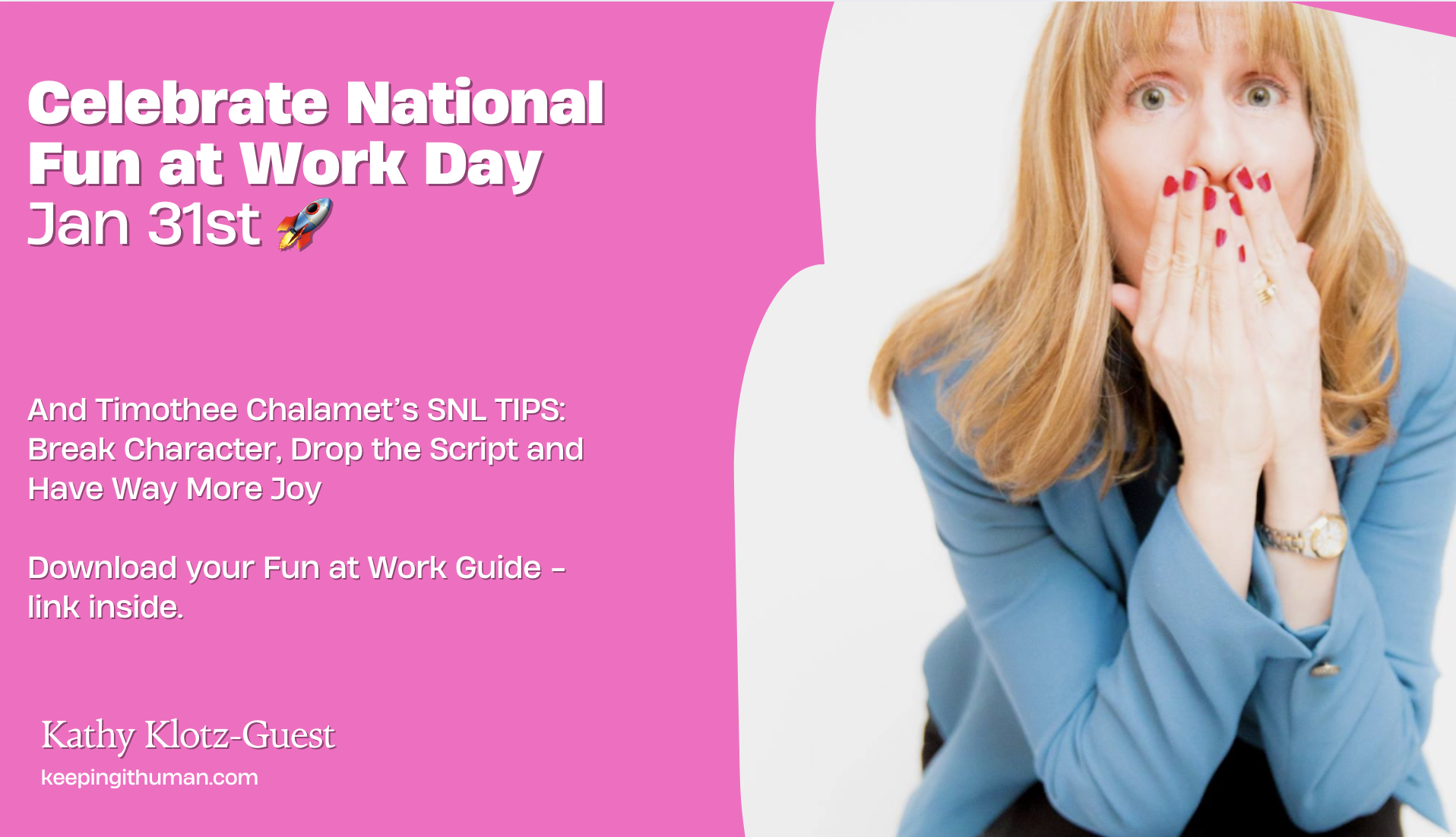Bullshit is all around. And most of us agree we hate it. Yet, sometimes we do it. Yep – even me in my younger days. Until I realized how much marketing bullshit hurts us. We need to stop marketing bullshit in our professional and personal lives. It does more damage than we often realize.
Why it Matters
If I’ve learned one thing as a storyteller and comic improviser it’s that the truth is currency. You see, truth is the bedrock for great business storytelling and comedy. And all comedy at its essence is great storytelling. I’ve written about this extensively when it comes to jargon and my colleague, Josh Bernoff, has a great book coming out on Writing Without Bullshit.
It matters.
When we bullshit – whether it’s in our marketing, our speaking, our personal lives, our LinkedIn profiles, you name it – we diminish the truth. And truth is the foundation of our credibility.
So when we use jargon, we hurt ourselves most. We also alienate others. It can send the message to others, sometimes unwittingly, that they are too dumb to understand it if they don’t get it.
And truth is our most precious currency. Easy to squander; hard to build. Jargon clouds the simple truth. Stop marketing bullshit!
Why We Do it
This is an interesting question. Speaking from my own experience, this is rooted in human nature. In my younger days as a twenty-something, I was embarrassed to admit that I didn’t know something that I thought I should. If there was a buzzword I didn’t know, I pretended I did. Don’t feel bad – we’ve all done it. By the time I was 30, I couldn’t take it anymore and, as most people know, I have waged war on jargon in the work I do. Because jargon does us and our audience a huge disservice.
Often times, we also don’t want to step up and challenge someone who uses it because we’re afraid of the backlash. I personally have been in a room full of people – either with a prospect or at a client meeting – and witnessed bullshit banter go on for a prolonged period without being challenged. I read body language and I see people roll their eyes and smirk because everyone feels the discomfort.
Yet, few people want to be the lone wolf to step up and challenge it. Here’s what I have also seen: When one person does it; others step up, too. Be that one person. And use grace and dignity when you do it so it’s not personalized, for example, “What are we really saying here? It’s unclear and that won’t help us.” It’s important to be the lookout for the greater good.
Jargon and bullshit also say to the world: we don’t know our own story. I have sat in on more mind-numbing meetings than I can count to get to the heart of a company’s story, only to hear more jargon. I know this all too well: people also use jargon to cover up not having a story that they believe in. If they did, they wouldn’t hide behind a bunch of BS that sounds like everyone else’s story.
The Antidotes
So what do we do when bullshit raises its ugly head? The first thing is to admit you don’t know the answer if that is the case. Whether it’s personal or professional, there is huge power and credibility in saying these three words: ‘I Don’t Know.’ Own it. It says to me that a person’s ego is low enough so that feedback can get through. Do you want to work with a bullshitter who won’t admit their bullshit? Nope. None of us does. It’s painful.
Several years back I was brought into a prospect meeting by an exec who called me to help shore up his story for an investor pitch. The company had a technology play that (their words) “optimized influencer marketing.” In the midst of the meeting, the founder went on for about 10 minutes using lots of jargon and buzzwords. He asked me do you have any questions. I said, “Yes. Just one. How will you make users’ lives better?” He looked at me flustered, and with a raised voice, said to me, “As I already explained to you…..” When he finished I looked right at him, and said, “You didn’t explain it. You are using a lot of words that say nothing. Just like your competition does. And if you can’t answer this, you won’t get funded.” Instead of saying, “I don’t know” or “That’s why I asked you to this meeting so I could get your help,” I got defensive posturing filled with more jargon. That’s ego. It was more important for him to be right and use fancy words, than to get help. Needless to say, I didn’t work with him. And I heard later from another exec who agreed with me that he was turned down for funding twice with the comment, “You need to work on your story.” Bingo.
The power of “I don’t know” says you value the truth and are ready to work to get there. Others are looking to see, “Can I work with this person?” Learning to drop the bullshit and say “I don’t know” will serve you personally and professionally, whether you are an entrepreneur or working for other people. It’s human, real, and people can work with that! Truth is human currency for people and brands.
Cut the Jargon Monoxide and Get Human
After you admit you don’t know, work to get clarity by using simple words without the jargon. Go back to your basic story and clarify. Get your main story right and you won’t need the jargon. I wrote a piece here that has some simple tips so I won’t repeat it here – you can read the article here. Cutting through bullshit to get to a great, simple message takes work and it’s worth it. When you’re simple and to the point, your message is so much more likely get through.
Bullshit repels. By contrast, clarity and simplicity attract. It’s a human thing, after all.
So how do you stop marketing bullshit? Let me know. Need help getting to your story? I can help. Email: kathy (at) keepingithuman (dot) com.




